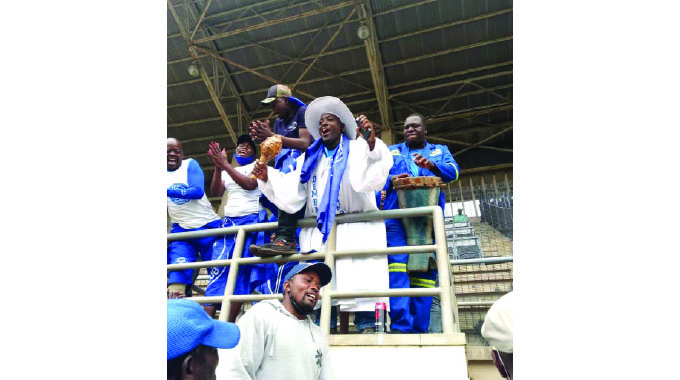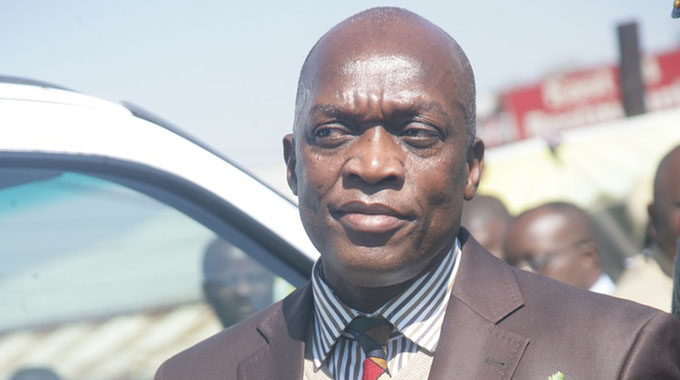EDITORIAL COMMENT: We need orderly polls today, results accepted

With 28 seats in the National Assembly and 105 local authority council seats up for grabs today, voters in the wards and constituencies have multiple responsibilities.
First, they should exercise their right to choose their representative in Parliament and the city, municipal and rural district councils where they live.
“Don’t care” is not standing for election and it is those registered voters who actually vote who will choose the person who will represent their area.
Secondly, they need to be orderly when they vote.
Covid-19 is still with us.
While the Zimbabwe Electoral Commission (ZEC) and President Mnangagwa, who actually sets the dates, believe that this threat which did delay the by-elections is now manageable, it is only manageable because of the precautions ZEC will be taking and because both the commission and the President believe Zimbabweans are sensible and will follow the rules.
Almost everybody who will be voting must by now have made up their minds who they will be choosing.
So there is no need for fancy performances in the queues, no need for people to sing and dance at the edge of the voting area, and no need to wear party regalia. None of this will change anything.
Thirdly everyone, whether they live in a constituency or ward where there will be voting or not, needs to accept the results.
We hope that every candidate has managed to find enough committed supporters and friends to be able to post an agent at every polling station in the ward or constituency they are contesting.
This is an absolute right and the access granted to agents means that candidates and the party they represent do not have to guess at what happens in the station.
The Chief Justice, after the necessary consultations, has empanelled 18 High Court judges to sit as the presiding officers of Election Courts.
Basically this means that while they continue their normal High Court duties, they are on standby to move promptly if there are electoral petitions since these will have priority over the normal cases.
There are enough judges, with a geographical spread, who can quickly examine any petition and the evidence presented, hear the responses from ZEC and any other candidates in that area, and then make a ruling, which when it comes to fact is final, although points of law can be appealed to the Supreme Court.
The theory is disputes are settled by a judge and that the agents appointed by the candidates are able to gather any evidence of errors and the like that might change the result.
Disputes cannot be settled by mass action, mobs in the street or any other non-legal methods, as has been suggested by one of the opposition parties.
Those who look at numbers turning up at party rallies should remember that elections are decided by counting crosses on ballots, not by counting heads at a rally.
We also need to remember that the polling officers are not aliens or strangers parachuted in.
They are civil servants who mostly live in the area of their polling station, often teachers at the school where the station is set up, and will thus be a cross-section of the electorate they are counting.
So you will probably find the same ratios of supporters for each candidate as you will see on the result sheet.
The officers though are professionals and they themselves vote on the secret ballot.
They are generally rather proud that they have followed the rules, administered the election properly and counted the votes precisely. They are not aliens: they are us.
It is always very disappointing to lose, but the losers gain stature when they accept the result, or if they think a big mistake was made turn to the courts, and congratulate the winner.
The possibility of unruly behaviour is real considering how most of the vacancies being filled today arose.
Most of the Parliamentary and council seats being contested today were won by the opposition in the 2018 general election, and the seats were vacated in what amounts to internecine warfare in opposition ranks when parties recalled the winning candidates.
This means most of the vacancies are in urban areas, because that is where the opposition won most of its seats last time, although there is a scattering of rural seats that were won by the “wrong” opposition candidate. Just as in religion, where historically people hate the “heretics” more than the “infidels”, this animosity in opposition ranks could be a problem and opposition leaders need to make sure it is not.
At the same time expectation are high. Zanu PF, with a lot of justification, expects to make significant inroads into opposition support.
It has been campaigning on its record, at least its record under the Second Republic, and that record is pretty good. But it still faces a sizable block of voters who would rather elect an incompetent thief on the basis of their party shirt colour, than a respectable candidate who can do something useful.
The major opposition parties, who tend to think they own blocks of voters and are just now deciding how the market is divided up, have been careful not to campaign on the record of the councils they control, since that record has been generally awful.
They have continued to campaign on the old slogans that they are not Zanu PF, rather than offering something positive.
The smaller opposition parties, with just a handful of candidates each, have tried to generate new ideas and perhaps may strike a chord with some voters.
But basically the major opposition parties are trying to defend seats, and one opposition leader has made it clear that he expects his party to win, or else, despite the difficulty of doing so on their record.
And Zanu PF, in the interesting position of being an underdog in what amounts to a mini general election, believes it can turn the active programmes of the Government it forms into new votes.
So the tensions and expectations are there.
The one point everyone needs to respect and accept is that in the end it is the people, the voters, who decide and everyone needs to realise that.










Comments